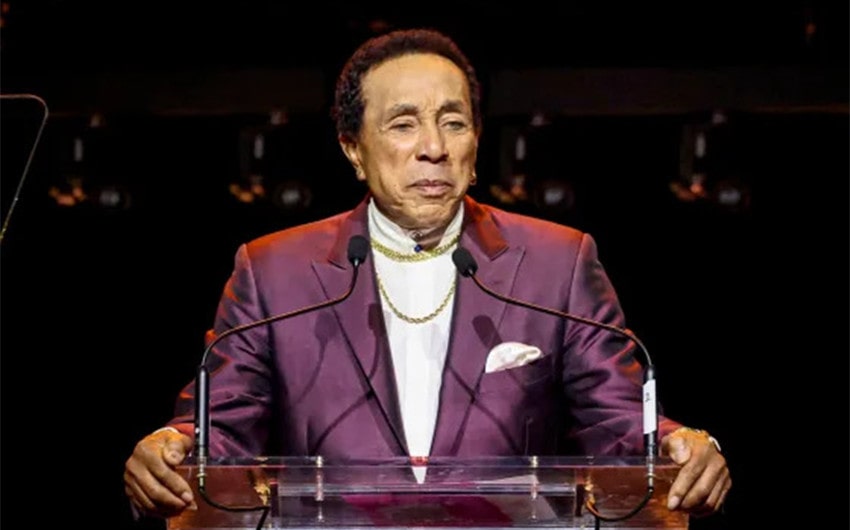How Much Is Smokey Robinson’s Net Worth? Uncovering the Fortune of a Motown Legend
If you’ve ever swayed to the soulful sounds of “Cruisin’” or “Tracks of My Tears,” you already know that Smokey Robinson isn’t just a singer—he’s a living legend. But beyond the timeless music and silky vocals, you may wonder what all those decades in the spotlight have added up to financially. As of 2025, Smokey Robinson’s estimated net worth is approximately $160 million.
How Did Smokey Robinson Build His Wealth?
You might assume it’s all about the record sales, but Smokey Robinson’s fortune goes far beyond just chart-topping singles. His career spans songwriting, producing, business ventures, and even poetry. He’s not just an artist—he’s a brand. And he’s been building that brand since the late 1950s.
1. Music Career: The Foundation of His Net Worth
As the founder and frontman of The Miracles, you saw him craft hits like “Shop Around,” “You’ve Really Got a Hold on Me,” and “I Second That Emotion.” These weren’t just chart-toppers—they were milestones in American music. Royalties from these songs still flow today, adding consistent income even decades later.
When he transitioned to a solo career in the 1970s, you followed him into a new soundscape with tracks like “Quiet Storm” and “Being with You.” These hits opened him to new audiences, ensuring his legacy and revenue streams only grew with time.
2. Songwriting and Producing for Motown
Smokey wasn’t just writing for himself. He penned classics for The Temptations (“My Girl”), Mary Wells (“My Guy”), and Marvin Gaye (“Ain’t That Peculiar”). Imagine earning royalties every time one of those songs plays on the radio or in a film. As a prolific songwriter, his publishing rights are one of his most valuable assets.
And as Motown’s Vice President for over two decades, his influence on the label’s rise added industry respect—and income. His executive role gave him a stake in the success of countless acts, placing him at the business end of the music industry, not just the creative one.
3. Touring and Live Performances
Even in his 80s, Smokey continues to perform live across the country. If you’ve seen one of his concerts, you’ve witnessed how timeless his voice and stage presence truly are. These tours are not just about nostalgia—they’re significant income earners, often bringing in millions annually through ticket sales, VIP packages, and merchandise.
4. Real Estate and Business Investments
Over the years, Smokey has invested in real estate across California. He once owned a luxury mansion in Encino that was listed for several million. His property portfolio and long-term holdings add real stability to his net worth, diversifying beyond performance income.
He’s also ventured into business and media. From skincare lines to poetry books, he’s tapped into markets outside music. You might even come across him in interviews or documentaries that also provide appearance fees or licensing profits.
5. Awards, Honors, and Legacy Contracts
When you think about all the lifetime achievement awards, Hall of Fame inductions, and cultural honors he’s received, you realize that Smokey’s career is the kind that secures legacy deals. From retrospective albums to brand collaborations, his legacy status earns him recurring licensing opportunities, including streaming rights, box sets, and licensing for film or TV.
Breakdown of His Income Streams
- Music royalties: From songwriting, solo records, and Motown hits
- Live performances: Regular touring even into his 80s
- Executive Motown salary: Past earnings during label’s heyday
- Book and poetry sales: Published works generate supplemental income
- Business ventures: Brand endorsements, investments, and side enterprises
- Real estate: Luxury properties and smart holdings in high-value markets
Why His Net Worth Keeps Growing
While most artists fade from public view, Smokey continues to evolve. You still hear his songs in commercials, see him booked on tours, and catch him in interviews that inspire new generations. As more platforms emerge—whether streaming, digital media, or tribute licensing—his catalog becomes even more valuable.
Plus, his catalog is part of a broader cultural renaissance. As interest in classic Motown surges in documentaries and biopics, Smokey’s work often sits at the heart of it. That opens the door to fresh deals, box sets, reissues, and limited-edition merchandise—all of which add to his income today.
Comparing Smokey to Other Motown Legends
If you compare his $160 million net worth to other music legends, you’ll find Smokey comfortably among the elite. While Diana Ross and Stevie Wonder may hold similar financial status, Smokey’s unique combination of artistry and business acumen has given him a particularly balanced portfolio—less dependent on one revenue stream, more diversified across time.
What the Future Looks Like
So what comes next for Smokey Robinson? You’ll likely see continued live shows, new remastered releases, and brand collaborations. There’s potential for a biopic or docuseries, which would not only pay him but also increase the value of his catalog. His estate planning is also likely in place to preserve both his music and financial legacy long after he’s off the stage.
Your Takeaway
Smokey Robinson isn’t just a legend in sound—he’s a masterclass in longevity. His estimated net worth of $160 million reflects not only his musical brilliance but also smart decisions, relentless work ethic, and diversified income. Whether you admire him for his voice, his lyrics, or his leadership at Motown, you’re looking at one of the most financially successful artists in music history.
And when you think of all those timeless lyrics and smooth melodies, it’s only fitting that the man behind them built a legacy worth millions—one note at a time.
Featured image source: nbcnews.com







